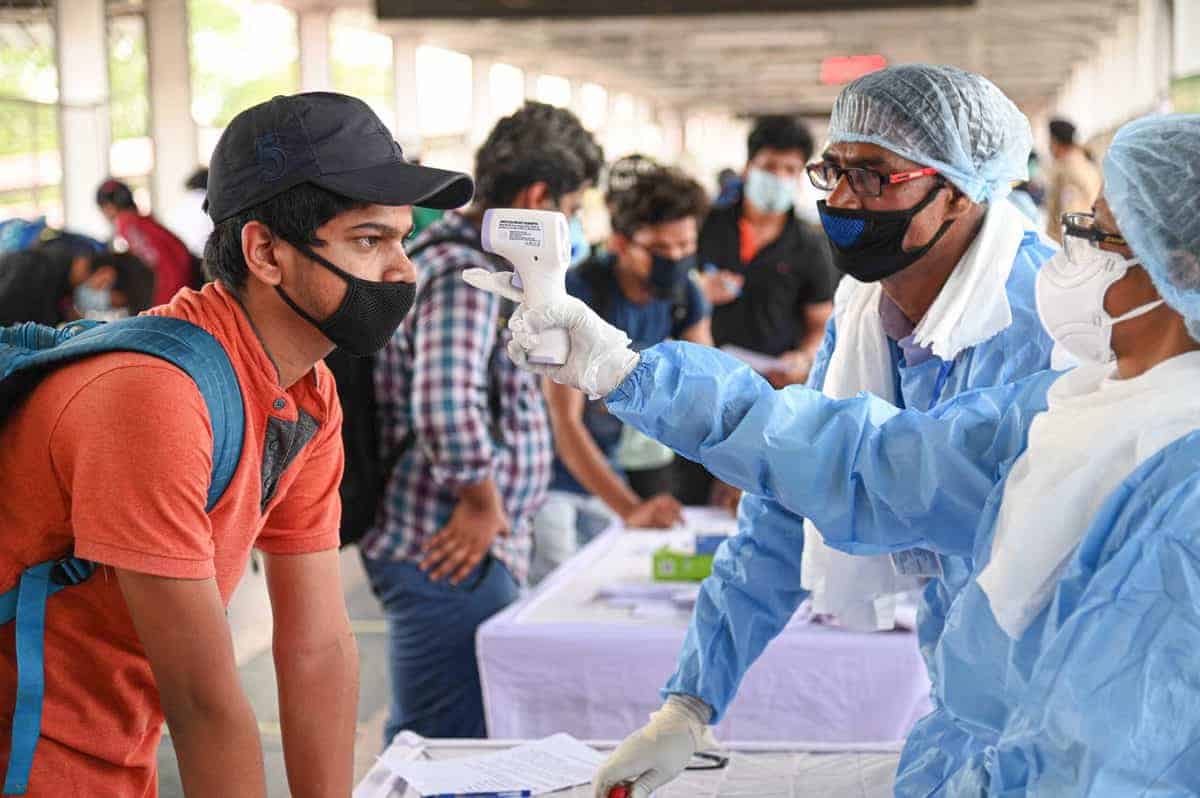As we read reports of violence against Covid-19 health workers it seems déjà vu. “Why only polio drops? Why are you worried about our health so much? I won’t let you sterilize my child. We don’t have water supply, the roads and drains are broken. We are living in hell and let us die.”
We faced these questions innumerable times working with the World Health Organization, while supporting India’s polio eradication campaign.

Polio cases reported in India in 2009 were 741. The figure was disturbing because it was the biggest number of polio affected people anywhere in the world. But an imaginatively fight India launched with active cooperation from the Global Eradication Initiative the polio menace was brought under control within two years. But India took time to declare itself polio free. It did so in 2014.
With painful memories of forced sterilization campaigns during emergency period, rumors were afloat about polio vaccine being a covert means to sterilize children. Many from poor, underdeveloped and Muslim communities considered boycotting the vaccination campaign.
To deal with this challenge, which could derail a critical international health programme, policymakers in the government of India, WHO, UNICEF and other partners came up with a unique ‘Underserved Strategy’. Considering the expectedly long duration of anti-polio drives and vaccination being a community oriented activity, all stakeholders agreed to pay attention to communication and dialogue with the communities. There was a unanimous agreement that using force was a big no – it may seem to work in the short term, it is catastrophic in the long term.
While the strategy rolled out, a number of experts on communication, religion and sociology joined in. Institutions with credibility among the Muslim community like Aligarh Muslim University and Jamia Millia Islamia etc were roped in. Religious seminaries like Darul Uloom Deoband, Darul Uloom Nadwatul Ulama etc among others issued statements of support. Social and religious leaders of national and local repute came together to support the campaign. The social mobilization network had good local penetration; through its community volunteers ensured the message reach to the right audience in the most effective manner possible.
The success of Underserved Strategy lied in it being an overarching strategy to generate acceptance within the community, while at the same time considering each family and individual as a unique case. Empathy, dialogue and perseverance were the fundamental principles. With a potent vaccine, scientific and technical minds, cohesive efforts and a community campaign finally resulted in India becoming polio-free in 2014.
During the current pandemic of COVID19, Muslims are again under the spotlight. Having faced poverty, illiteracy and targeted violence, Muslim communities, mainly those living in urban ghettos, and densely populated slums understandably have trust issues. Polio immunization despite being just two drops, was challenging. COVID, on the other hand, has more complexities in terms of screening, isolation and quarantine. Sight of law enforcement outside a house is enough to generate a great deal of anxiety in the community. Learning from polio eradication campaign and considering the need for serious community oriented efforts, a holistic strategy is required to identify and address these problems.
We all must do well to remember that every COVID-19 case is a victim herself/himself by a chance or by some mistake and none is a deliberate one. The religious or communal prejudice by responders, media and individuals would severely dent the fight not just against this virus but also against any other community based health programmes. The stigmatization might lead to poor self-reporting, jeopardizing the effectiveness of isolation and quarantine strategy. In the current COVID-19 times, the discrimination and prejudices have spilled over breaking boundaries of caste, religion or status. Hence, the need of robust and all-inclusive communication strategy backed with implementation science is the need of hour.
Therefore lessons learnt during the polio eradication campaign are valid and must be revisited in the strategizing the fight against corona virus. This battle is predicted to last long; hence communication initiative to keep the local community leaders and influencers well informed via effective communication is essential to nip any rumor in the bud.
Inclusion of local people in the team of health professionals who visit the area for case detection and contact tracing would help in reducing the fear and can achieve better cooperation from the community. A database of local mohalla level influencers and the members of communication networks which played an essential part in the polio eradication campaign is existing and could be used by public health authorities to get their message conveyed to the broader community.
This is the time when all stakeholders must join hands with full honesty, care and empathy. We all are together in this!
By Dr. Javvad Suri
Dr. Javvad Suri, MBBS MPH, is a public health expert. He has worked with the World Health Organization as Surveillance Medical Officer in western UP during the polio eradication programme.

